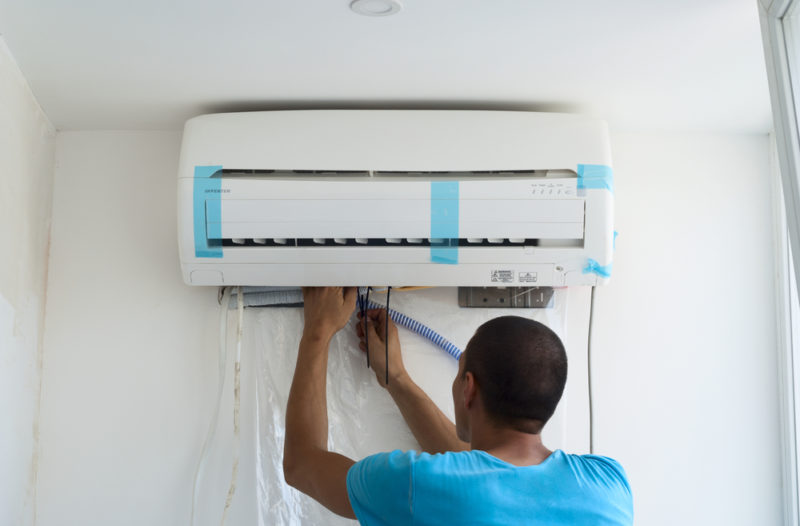The sweltering heat of summer can turn your home into an uncomfortable oven. An air conditioner is a must-have appliance to beat the heat and ensure your comfort. But with a plethora of options available, choosing the right AC can be overwhelming. In this guide, we'll break down the different types of air conditioners, their pros and cons, Ac installation complete guide, and help you determine the best fit for your home and lifestyle.
Understanding Your Cooling Needs
Before diving into AC types, it's crucial to assess your cooling requirements. Consider the following factors:
- Room size: The square footage of the room(s) you want to cool will determine the AC's capacity.
- Climate: Your local climate influences the type of AC needed. For instance, areas with high humidity require dehumidification capabilities.
- Budget: Air conditioners come in various price ranges. Set a realistic budget before exploring options.
- Installation: Some ACs require professional installation, while others are DIY-friendly.
- Energy efficiency: Consider your environmental impact and potential energy savings.
Types of Air Conditioners
-
Window Air Conditioners
- Pros: Affordable, easy to install, portable.
- Cons: Less efficient, noisy, limited cooling capacity, can obstruct window view.
- Best for: Small rooms, apartments, or temporary cooling solutions.
-
Portable Air Conditioners
- Pros: Highly portable, no installation required, can be moved from room to room.
- Cons: Less efficient, noisy, requires venting, limited cooling capacity.
- Best for: Small spaces, rentals, or people who frequently move.
-
Central Air Conditioners
- Pros: Even cooling throughout the house, quieter, energy-efficient, ductwork can be used for heating in winter.
- Cons: Expensive to install, requires ductwork, and maintenance can be costly.
- Best for: Larger homes with multiple rooms, those seeking whole-house comfort.
-
Ductless Mini-Split Systems
- Pros: Flexible installation, zoned cooling, energy-efficient, quiet.
- Cons: Higher upfront cost, requires professional installation, outdoor unit visible.
- Best for: Homes with existing ductwork, open floor plans, or those wanting to cool specific rooms.
-
Window-Mounted Mini-Split Systems
- Pros Combines benefits of window AC and mini-split, efficient, quiet.
- Cons Less flexible than traditional mini-splits, installation might be more complex.
- Best for Homes with limited space for outdoor units, and those seeking a balance of efficiency and convenience.
Choosing the Right AC for You
To make an informed decision, consider the following factors:
- Cooling needs: Determine the size of the area you want to cool and the desired cooling capacity.
- Budget: Set a realistic budget for the purchase and installation of the AC.
- Installation: Assess your ability to install the AC yourself or if you need professional help.
- Energy efficiency: Look for Energy Star-rated units to save on energy costs.
- Noise level: Consider the noise level of the AC, especially if you're sensitive to sound.
- Maintenance: Factor in the ongoing maintenance costs and requirements.
Conclusion
Selecting the perfect air conditioner involves careful consideration of your specific needs and preferences. By understanding the different types of ACs and their features, you can make an informed decision that ensures optimal comfort and energy efficiency. Remember to consult with HVAC professionals for expert advice and installation.
FAQs
What is the most energy-efficient type of AC?
Ductless mini-split systems are generally considered the most energy-efficient option. However, the efficiency of any AC depends on factors like size, installation, and maintenance.
Can I install a window AC unit myself?
Yes, most window AC units can be installed by a homeowner with basic DIY skills. Refer to the manufacturer's instructions for specific guidance.
How often should I replace my air conditioner filter?
It's recommended to replace your air conditioner filter every 1-3 months, depending on usage and air quality.
What is the difference between a heat pump and an air conditioner?
A heat pump can both heat and cool your home, while an air conditioner only cools.
How can I improve the efficiency of my AC?
Regular maintenance, proper insulation, sealing air leaks, and using fans can help improve your AC's efficiency.





